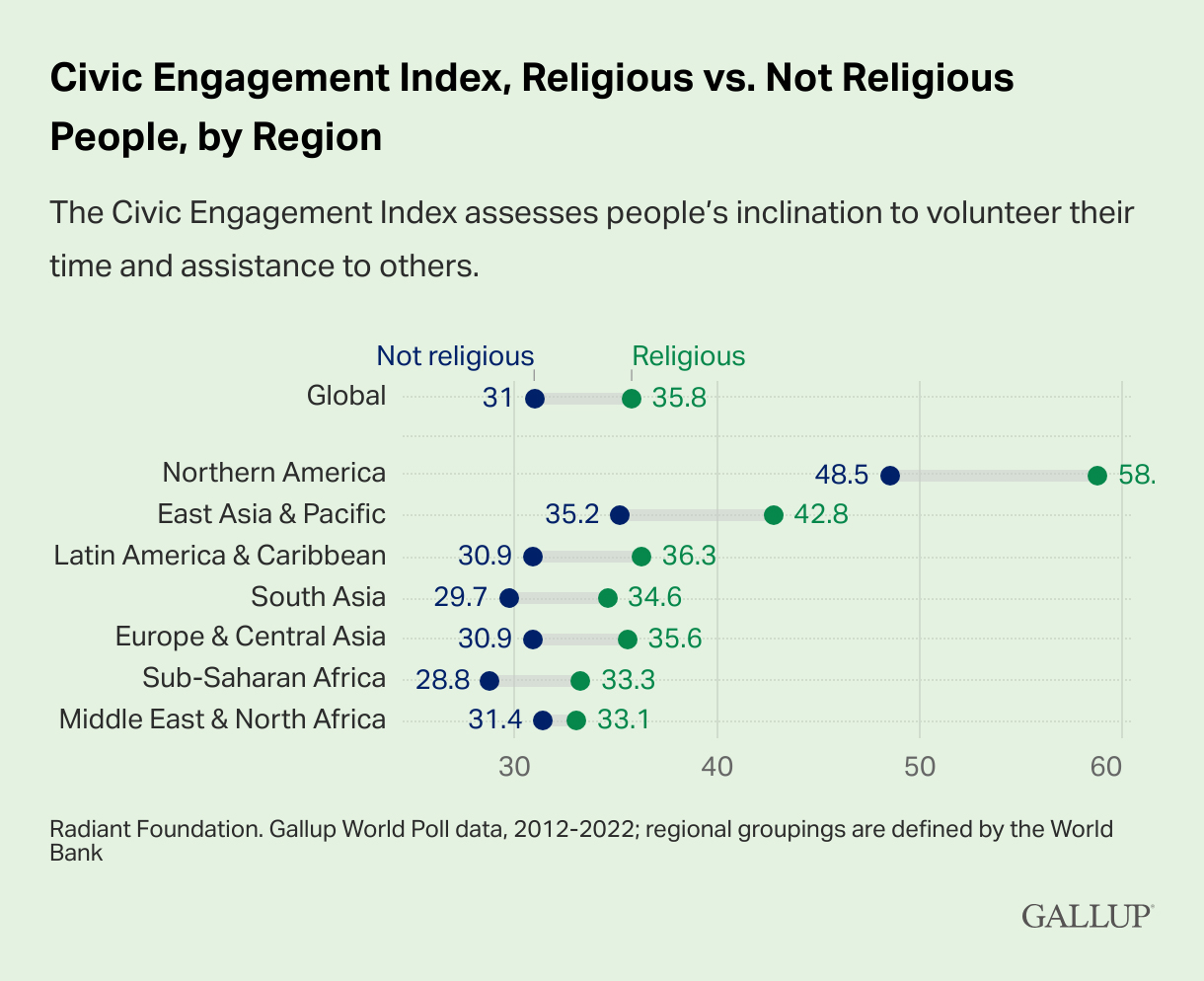For the report, Gallup partnered with the Radiant Foundation, which promotes a positive view of religion and spirituality and is associated with The Church of Jesus Christ of Latter-day Saints.
Jeff Jones, Gallup poll senior editor, said measuring the impact of religion and spirituality on wellness is complicated, especially as people become less religious and the way they practice spirituality evolves.
“With the changing nature of religious landscapes and spiritual practice, it can make quantitative measurement amid the changes challenging, as the traditional forms of spirituality — namely, attending formal religious services, are becoming less common and people are seeking other ways to fulfill their spiritual needs,” Jones said in an email.
“Civic Engagement Index, Religious vs. Not Religious People, by Region” Graphic courtesy Gallup
The report, which also includes quotes from experts and a review of past research on the connection between wellness and religion, notes that even as researchers become more aware of the positive outcomes of religion, people are less interested in religion around the world.
While they have no polling data on the decline of religion, the report suggests several causes for that decline — including growing polarization that pits religious and nonreligious people against each other. Nonreligious people at times see religious people as a threat. Religious people, especially from larger faith groups, can wield their power in ways that others see as harmful.
“Religious groups and individuals — particularly from the dominant religious group in a society — who are hostile to other religious groups may promote a cultural context that is harmful to the wellbeing of those outside the group. Resentment toward the dominant group may also tune people out to their messages, both those that are harmful (out‑group animosity) but also that are helpful (serving others),” the report states.
This article originally appeared here.


